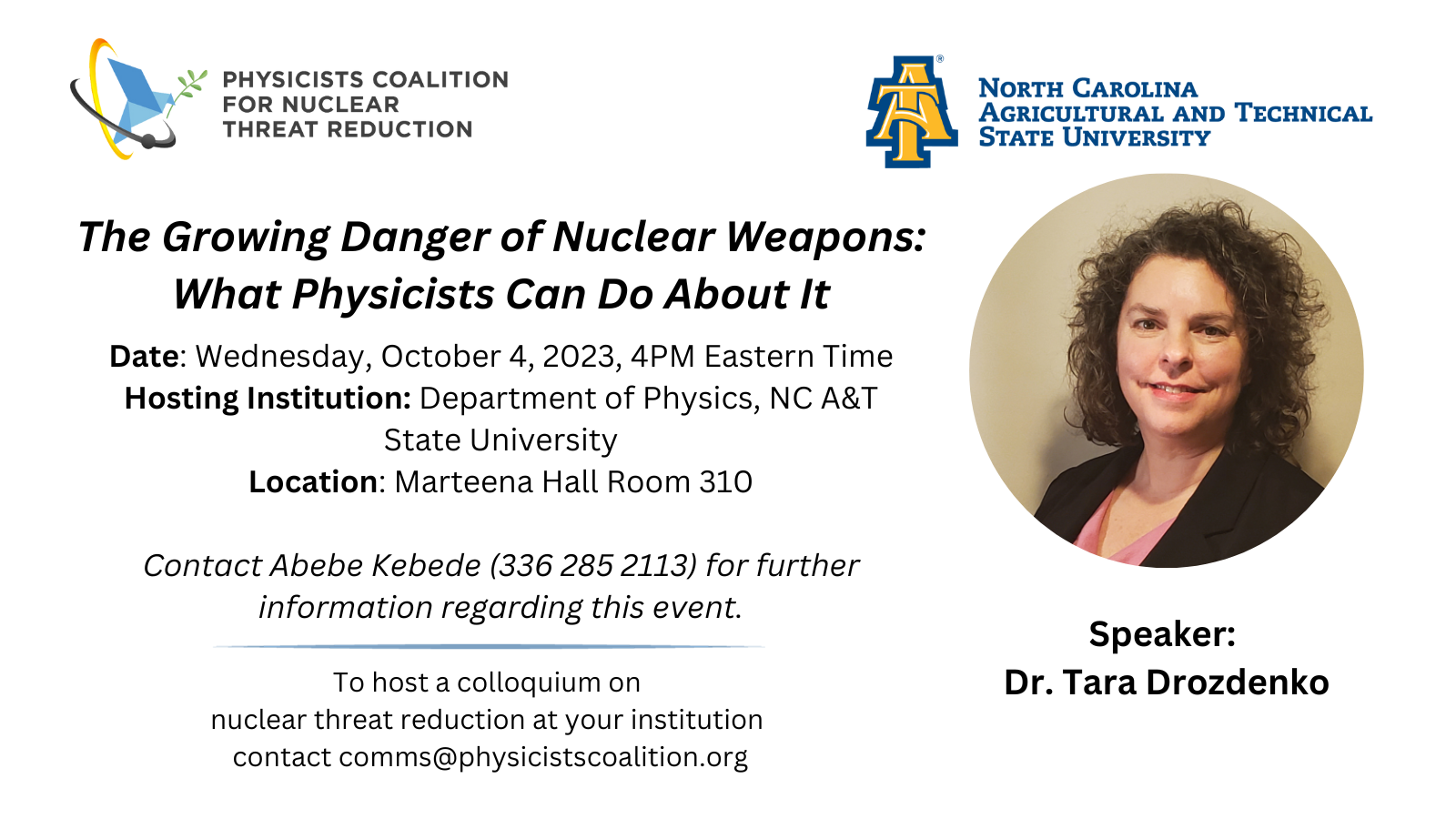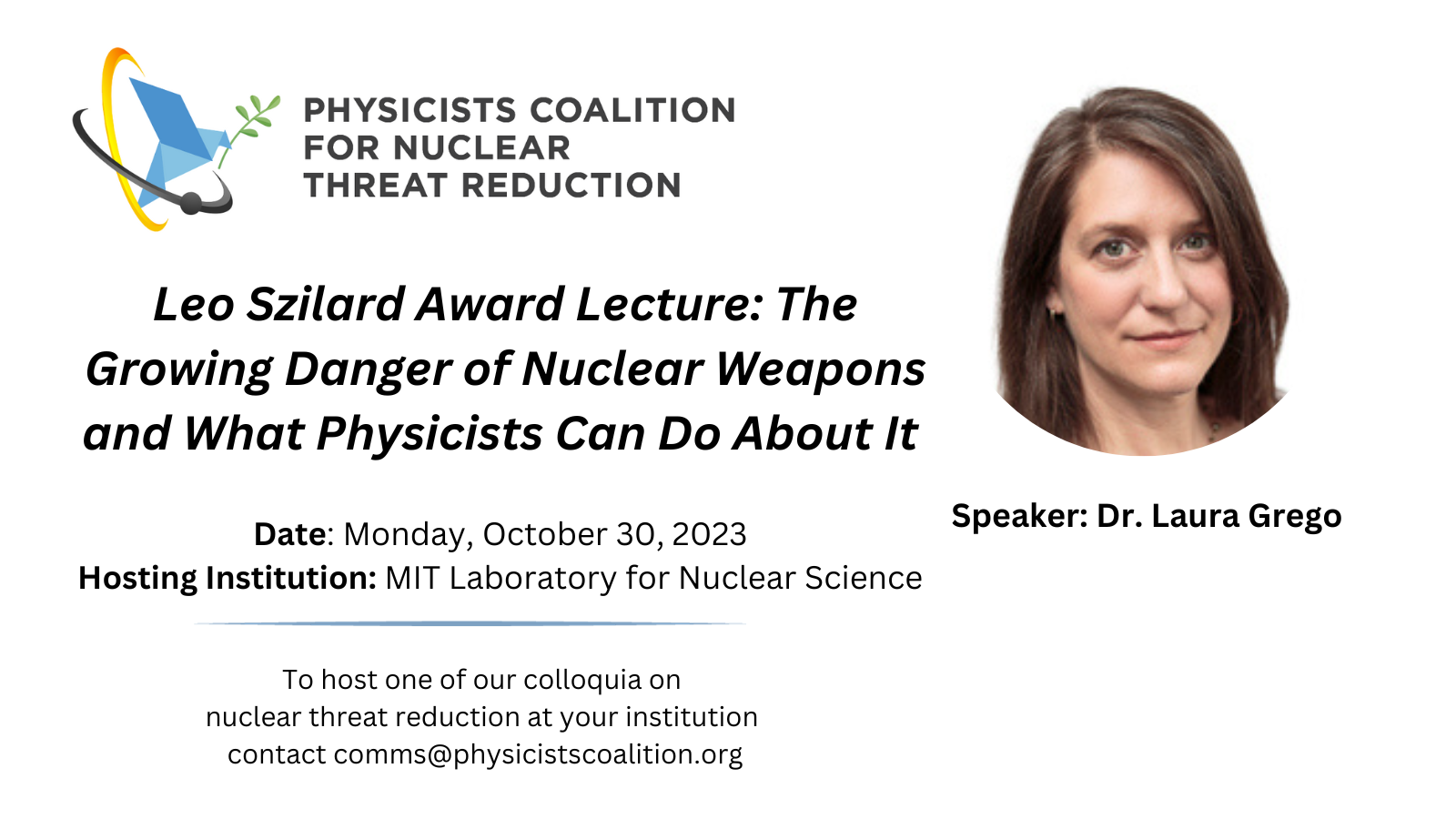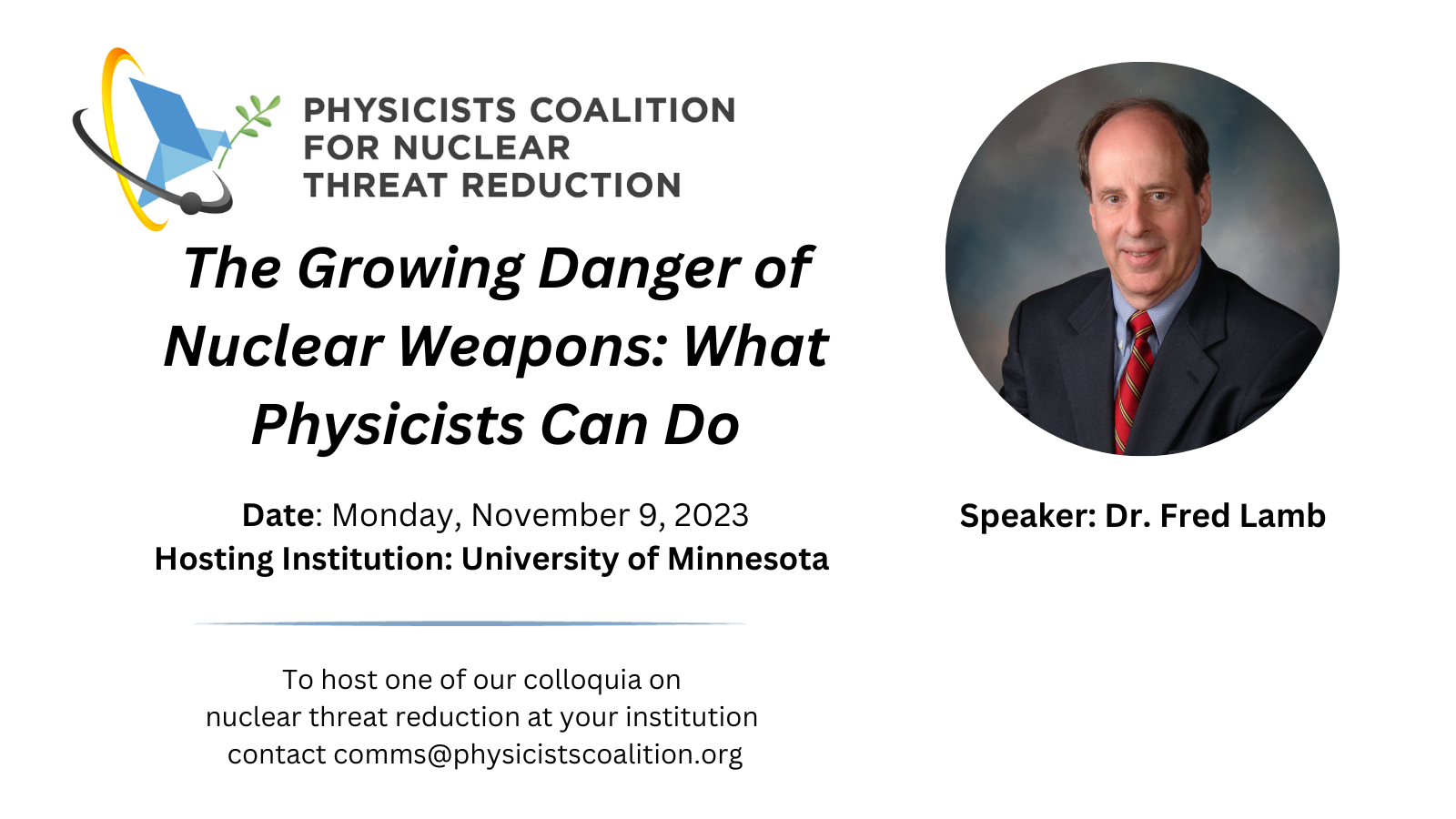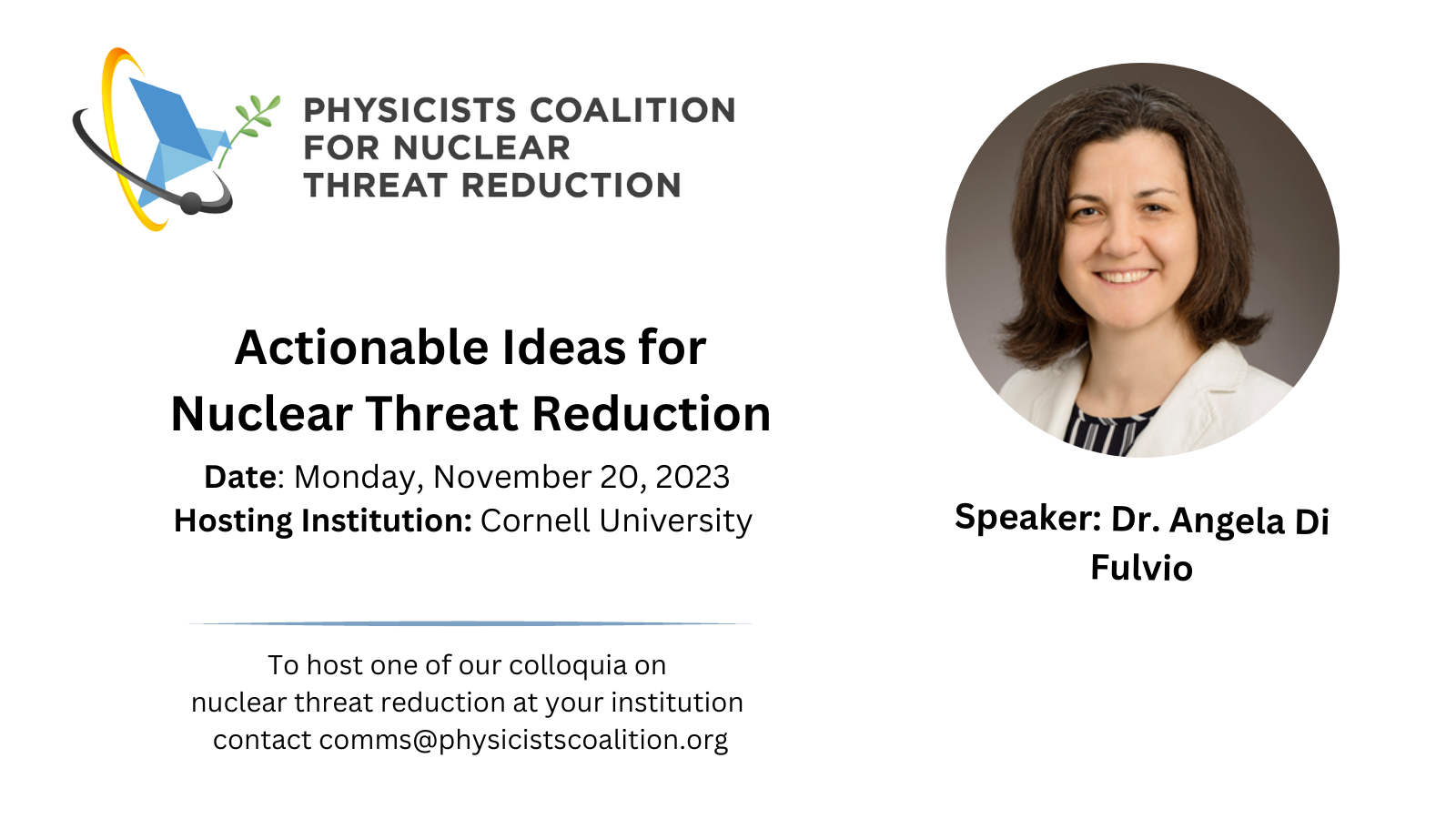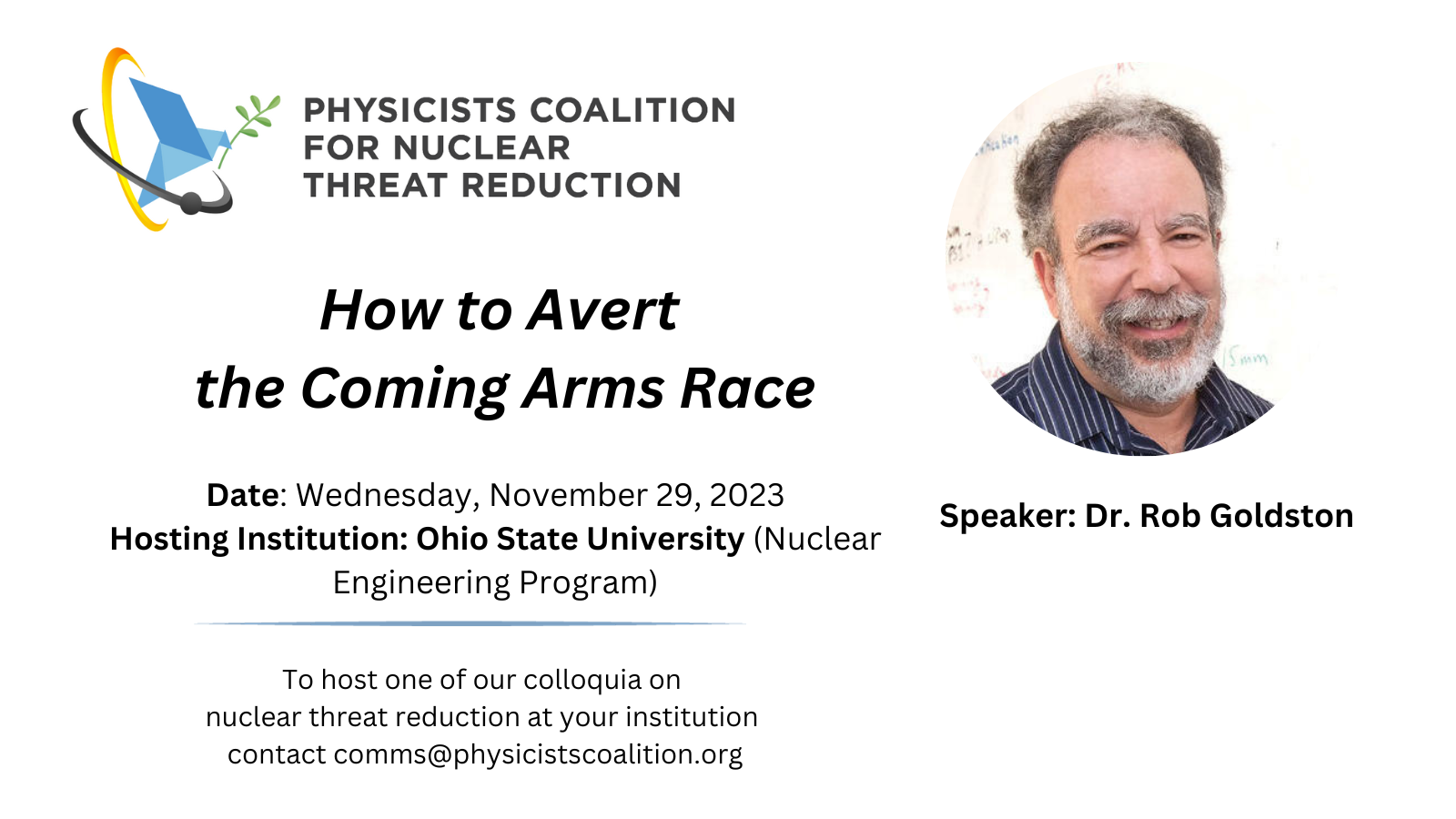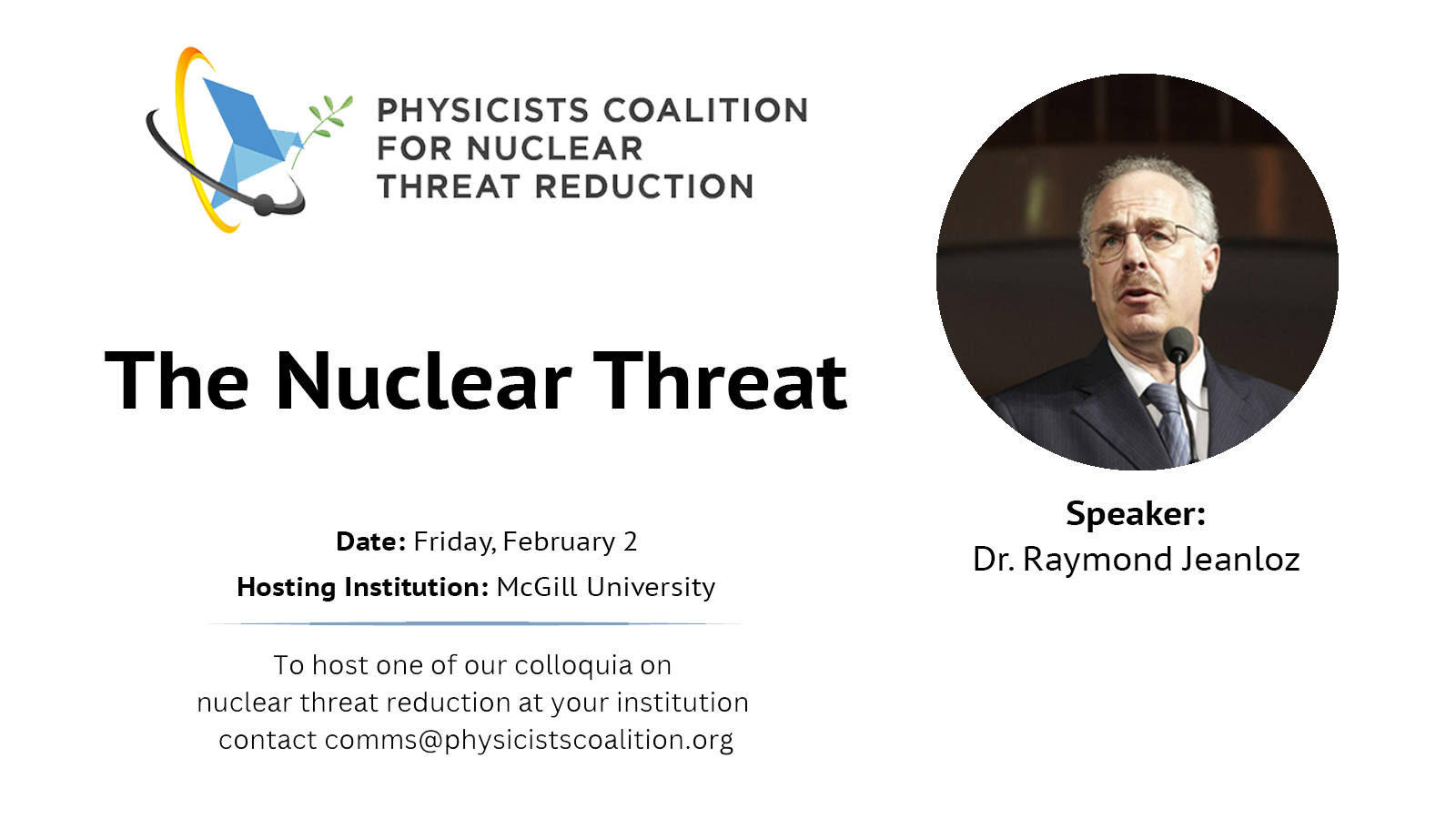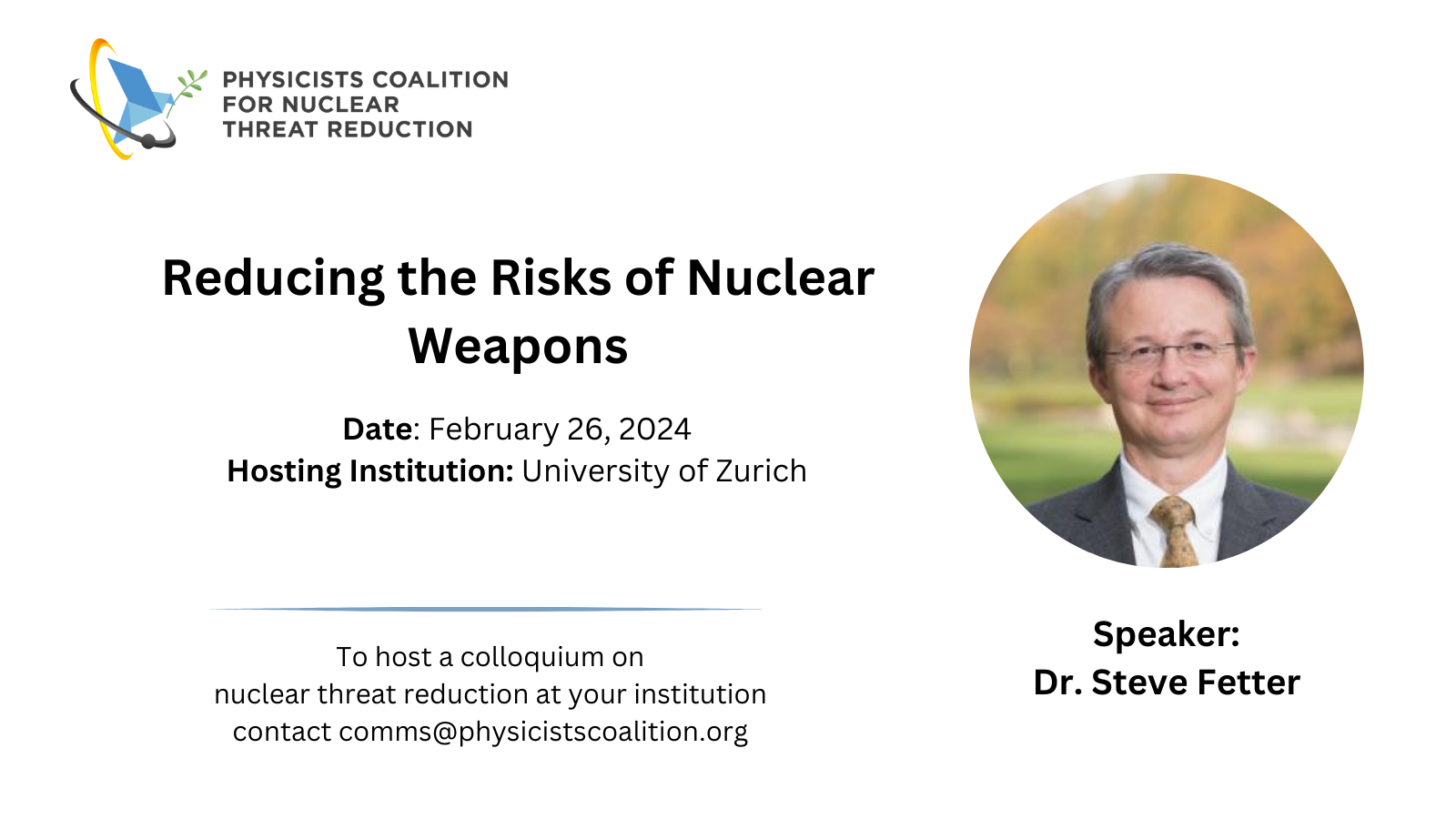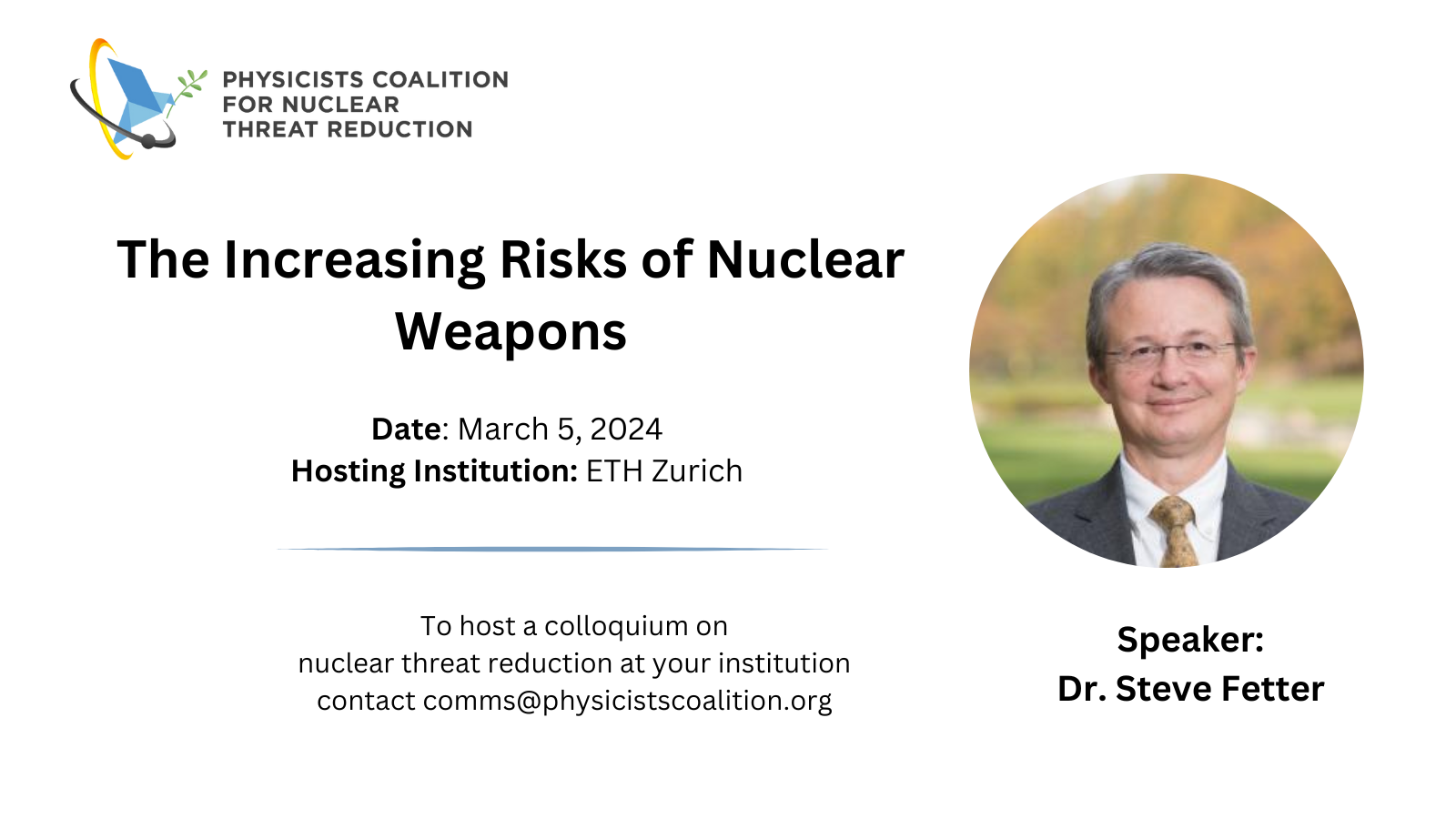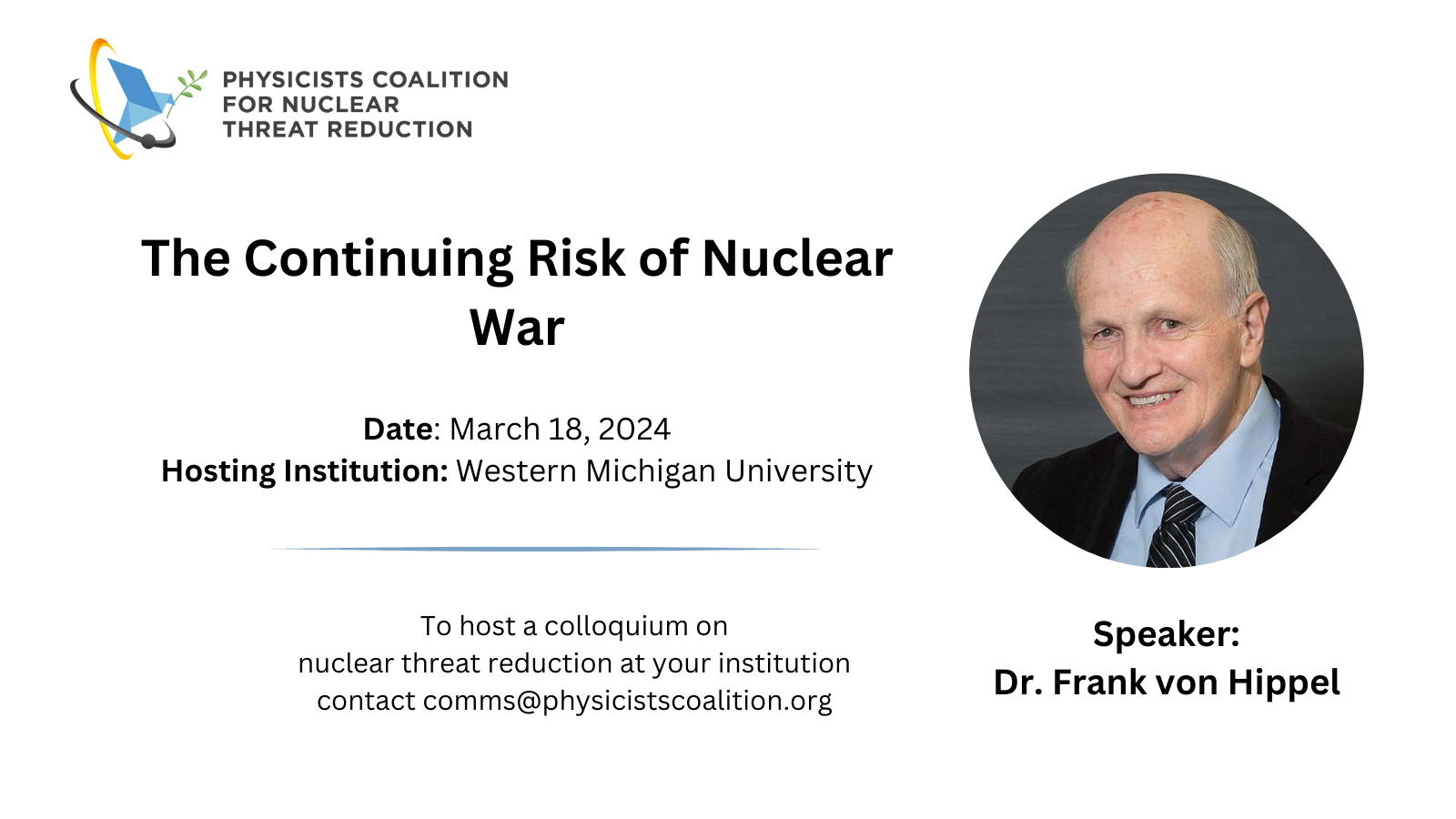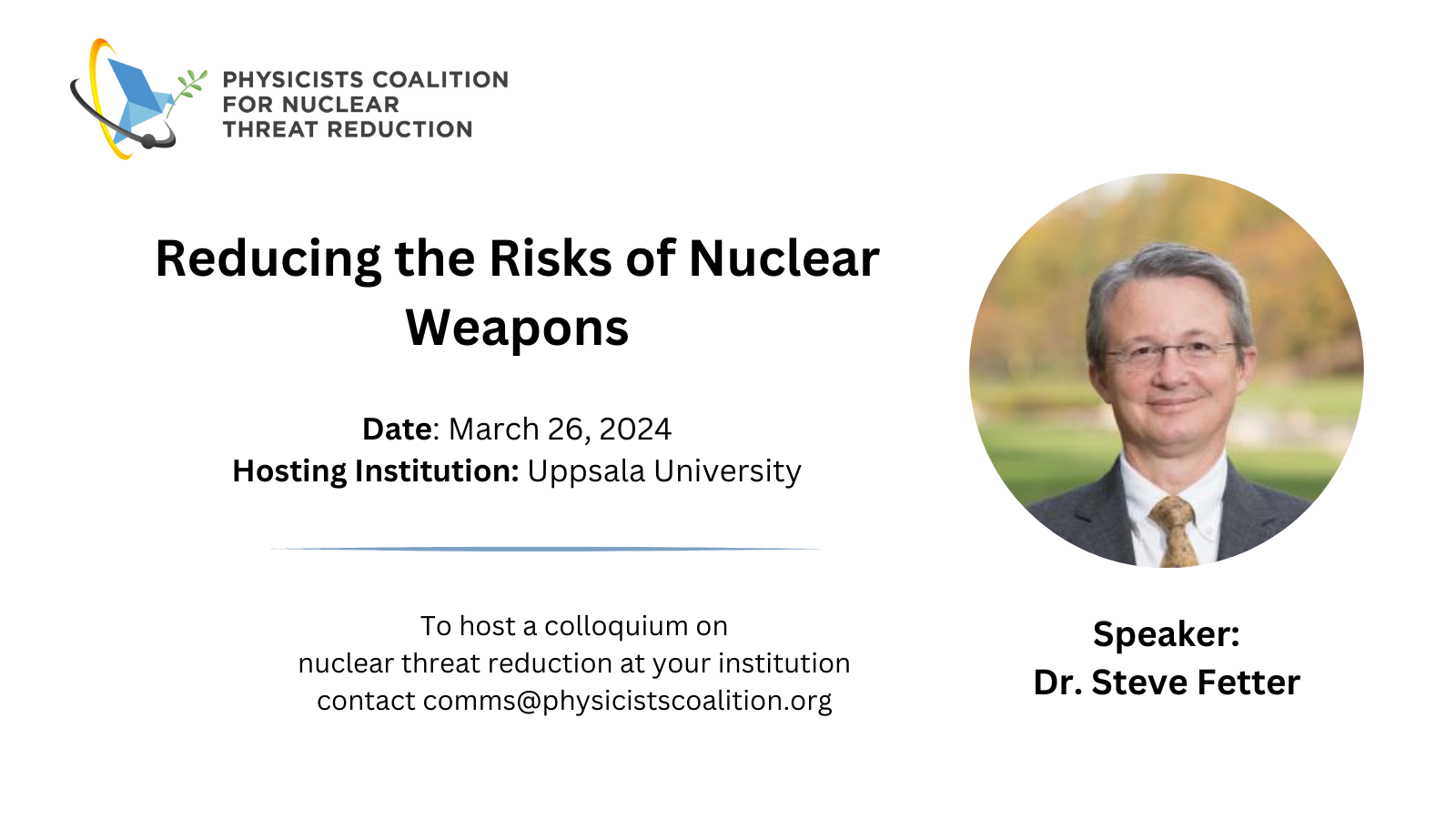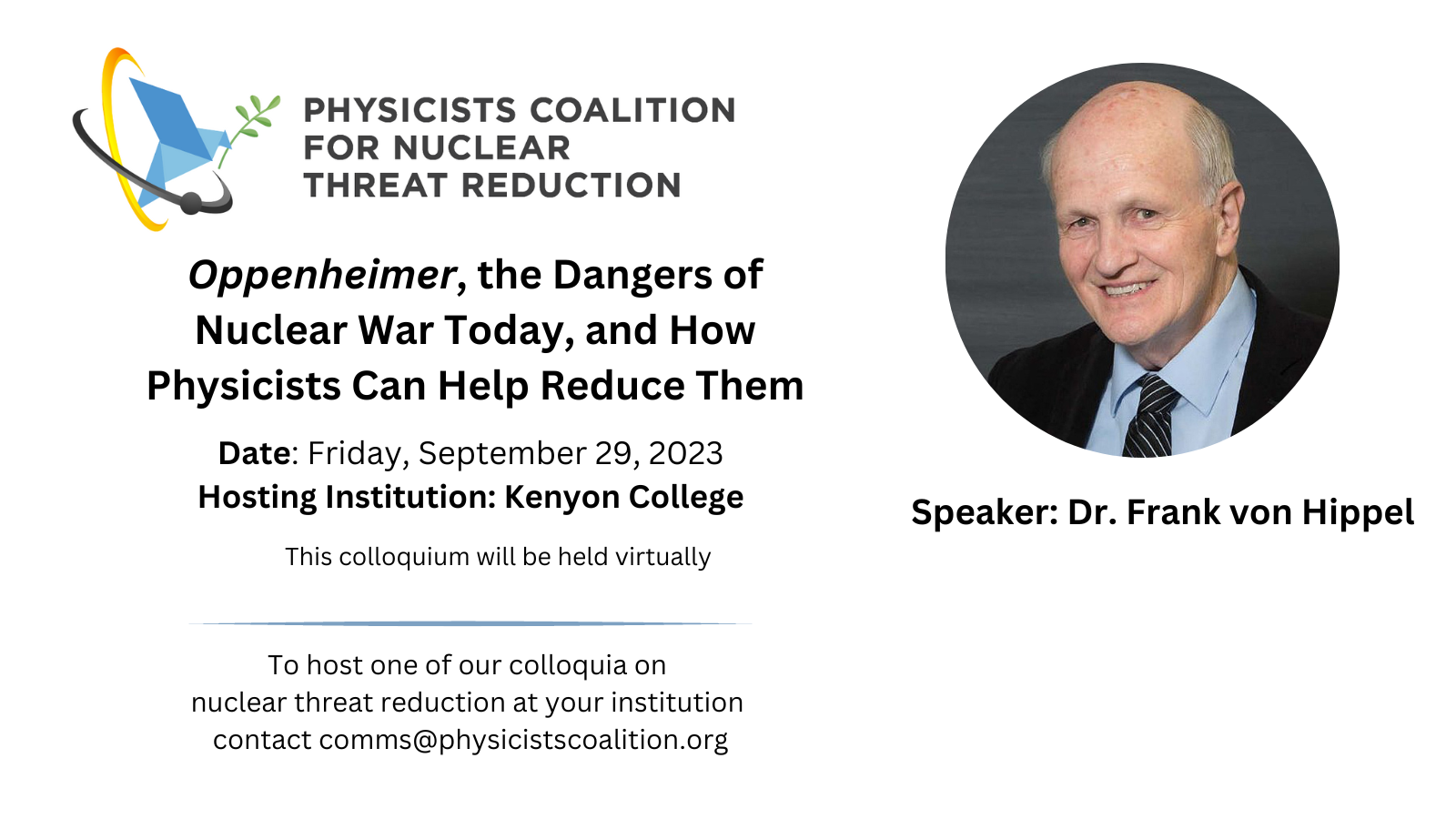
Kenyon College – Oppenheimer, the Dangers of Nuclear War Today, and How Physicists Can Help Reduce Them
Abstract The film Oppenheimer barely hints at the debate among the Manhattan Project physicists on “the impact of the Gadget on Civilization” and their efforts to influence the decision on using nuclear weapons against Japan. It also does not explain that Oppenheimer’s “trial” and termination as a government advisor was due to his opposition to […]

